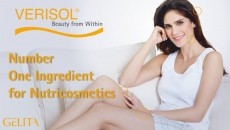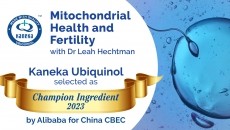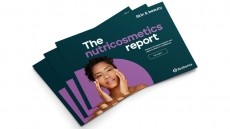Beta-carotene effective as sunburn protector: meta-analysis
the longer the supplementation period the greater the protection,
says a new meta-analysis.
Ten weeks of supplementation were required to produce a protective effect, according to pooled data from seven studies reported in the journal Photochemistry and Photobiology. "This meta-analysis indicates that beta-carotene supplementation of humans is effective in providing protection against the development of a sunburn reaction," wrote Wolfgang Kopcke from Munster University Hospital and Jean Krutmann from the Heinrich-Heine-University in Dusseldorf. "This observation emphasizes that systemic photoprotection by beta-carotene is quite different from that achieved with a topically applied sunscreen," they added. There is a growing body of science focusing on the potential benefits of nutrients to boost skin health from within, with lutein, lycopene and superoxide dismutase (SOD) having been reported to improve skin health. Kopcke and Krutmann searched the literature for studies on beta-carotene supplementation studies for protecting humans against sunburn. Seven studies were identified that tested the effectiveness of the carotenoid. The meta-analysis found that the carotenoid did offer protection against sunburn and that at least 10 weeks of supplementation were required to afford this protection. Moreover, for every additional month of supplementation, the degree of protection increased, added Kopcke and Krutmann. "This observation emphasizes that systemic photoprotection by beta-carotene is quite different from that achieved with a topically applied sunscreen," they said. "Whereas proper use of modern sunscreens provides protection against the development of a sunburn reaction within minutes after topical application, beta-carotene-induced photoprotection builds only slowly over several weeks of supplementation." Responsibly, they stressed that the carotenoid was not a replacement for sunscreen, particularly under strong sun exposure, but may work in addition to topicals. Beta-carotene's sun protection factor (SPF) was "at best" about four, they said. "Topical application of sunscreens and systemic photoprotection with beta-carotene are not competing strategies which are intended to replace each other, but instead they are complementary in nature and should be combined," wrote Kopcke and Krutmann. "In this regard, beta-carotene intake would serve to provide a basic, all day protection against sunburn, which would affect all parts of the skin, whereas sunscreens would be used 'in addition' in particular to prevent sunburns under conditions where the consumer anticipates increased exposure of selected skin areas to UV radiation." Mechanism The researchers said the exact mechanism or mechanisms behind beta-carotenoid's sun protection were unknown, but said it was tempting to speculate that the carotenoid's antioxidant activity may be responsible. On exposure to UV radiation, particularly UV-B, reactive oxygen species (ROS) are produced in the skin that may result in oxidative stress, a known accelerator of the ageing process. Beta-carotene may quench these ROS and thereby offer skin protection. On the other hand, an alternative mechanism is proposed by Kopcke and Krutmann: beta-carotene may interfere with various signaling pathways that result form UV-B exposure, which start in DNA. "The efficacy of beta-carotene to prevent sunburn formation may thus alternatively be explained by the capacity of beta-carotene to interfere with one or several of these signaling pathways," they concluded. Industrial welcome The results of the study were welcomed by Manfred Eggersdorfer, head of R&D at DSM Nutritional Products. "These findings demonstrate our ever-growing understanding of the vital link between nutritional intake and health," he said. "Nutritional science is increasingly demonstrating how we can influence our health and well-being by means of the nutritional choices we make." Source: Photochemistry and Photobiology Volume 84, Issue 2, Page 284-288, doi: 10.1111/j.1751-1097.2007.00253.x "Protection from Sunburn with beta-carotene - A meta-analysis" Authors: W. Kopcke and J. Krutmann











